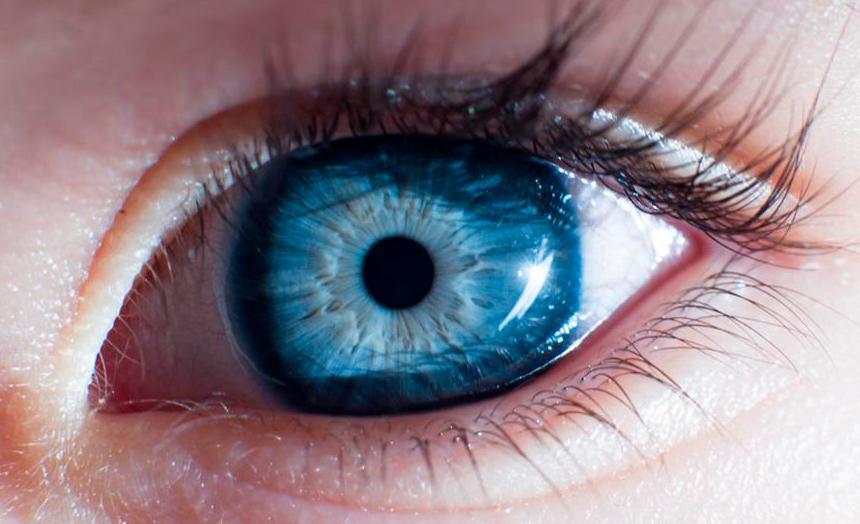Ophthalmology and Visual Sciences
The Discipline of Ophthalmology and Visual Sciences specialises in eye health conditions within individuals and populations.

Our research interests range from clinical trials in glaucoma, retina and cornea; through to oculoplastic and orbital surgery, and blindness prevention.
We educate Adelaide Medical School’s undergraduate and postgraduate students, through clinical placements, lectures, tutorials and hands-on practical sessions; along with facilitating honours projects for students who are interested in ophthalmologic research.
As a centre of excellence in eye care in Australia, the discipline incorporates all ophthalmic subspecialty services via its clinical arm, the Ophthalmology Network. The network encompasses the Departments of Ophthalmology at the Royal Adelaide Hospital, The Queen Elizabeth Hospital and Lyell McEwin Hospital. It is the largest provider of ophthalmic care to South Australians - seeing over 45,000 outpatients and performing over 3,000 procedures per year.
Ophthalmology research program
The discipline has a long-standing and successful research program in ophthalmology, encompassing basic science, clinical and epidemiological studies. Since 2005, it has generated over $9.7 million in grant funding and published over 600 papers in peer-reviewed journals. It conducts research in conjunction with the Ophthalmic Research Laboratory (ORL) and ophthalmology divisions within the Royal Adelaide Hospital and The Queen Elizabeth Hospital.
Ophthalmic Research Laboratory
The Ophthalmic Research Laboratory (ORL) undertakes groundbreaking research on aspects of retinal cell biology and glaucoma, using both in vitro and in vivo systems and state-of-the-art molecular biology techniques. Some of its work has been translated into further study through clinical trials.
ORL’s projects broadly include research on:
- the pathogenesis of glaucoma
- developing a new neuroprotective agent to treat glaucoma
- retinal/photoreceptor metabolism
- alternative laser treatment for retinal diseases.
Oculoplastic and Orbital Division
Located at the Royal Adelaide Hospital, the Oculoplastic and Orbital Division is internationally-recognised as a centre of excellence in oculoplastic, lacrimal and orbital surgery. Its fellowship program is one of the most sought after worldwide. Areas of research include the management of skin malignancy in the periocular region, orbital oncology and the development of new surgical techniques in orbital surgery and eyelid reconstruction.
Cataract and refractive surgery
The discipline collaborates with the Queen Elizabeth Hospital’s Department of Ophthalmology, focusing on research into vision and refractive outcomes of cataract surgery. It trials and assesses new intraocular lens designs and methods of calculating intraocular lens power. It has a particular focus on the surgical management of astigmatism and presbyopia. New projects are progressed by the Fellow in Cataract and Refractive Surgery, under the supervision of Associate Professor Michael Goggin. Research fellows have the facility not only to publish their findings but also to submit theses from their work for masters and doctoral degrees.
Clinical trials
The eye departments at both the Royal Adelaide Hospital and The Queen Elizabeth Hospital are highly sought-after in sponsored multi-centre clinical trials. The departments study new treatments for a range of ophthalmic conditions and diseases. The discipline’s clinical researchers conduct in-house clinical trials and research, including studies and audits of age-related macular degeneration treatment, glaucoma, cataracts and orbital tumours.
Improving public health outcomes
We seek to improve public health outcomes, with a particular focus on Indigenous communities and developing countries. The discipline has completed several studies regarding the prevalence of trachoma, refractive error and diabetic retinopathy within South Australia’s Indigenous communities. Through its affiliation with the Sight For All foundation; the discipline regularly conducts field research to determine the magnitude and causes of blindness in developing countries, such as Myanmar, Laos and Cambodia.
Postgraduate ophthalmology training
A Master of Philosophy (Ophthalmology) degree is available for eligible candidates. This is a two-year, full-time, research-focussed degree with no coursework requirement. The degree may involve any aspect of ophthalmology, including laboratory-based ophthalmic science, clinical research or epidemiology.
Our campuses at the Royal Adelaide Hospital and Queen Elizabeth Hospital are accredited by the Royal Australian New Zealand College of Ophthalmology (RANZCO) for the ophthalmology training program. Supervised clinical and surgical training sessions, as well as a fully functional wet laboratory, are available for trainees.
Research fellowships in ophthalmology
We offer a number of twelve-month fellowships, across a range of ophthalmology sub-specialties, including:
- anterior segment
- cataract and refractive surgery
- oculoplastics
- medical retina
- surgical retina.
See the Discipline of Ophthalmology and Visual Sciences fellowship opportunities brochure for more information. Enquiries can be directed to: eye@health.sa.gov.au.
Contact us

Professor Weng Chan
Discipline Lead
Discipline of Ophthalmology and Visual Sciences office
Ph: +61 8 7074 2391
Email: eye@health.sa.gov.au
Key contacts
- Professor Weng Onn Chan - Discipline Lead
- Professor Dinesh Selva - Foundation Chair and Professor
- Julia Winnick - Executive Assistant
-
Academic staff
- Dr Sudha Cugati - Clinical Lecturer
- Kylie Dansie - Clinical Trials Coordinator
- Associate Professor Jagjit Singh Gilhotra - Senior Clinical Lecturer and Postgraduate Coordinator
- Dr Lucy Goold - Clinical Associate Lecturer
- Dr Tim Gray - Clinical Lecturer
- Dr Tim Greenwell - Clinical Associate Lecturer
- Dr Stephen McGovern - Clinical Senior Lecturer
- Dr James Muecke AM - Clinical Senior Lecturer
- Dr Henry Newland - Clinical Senior Lecturer
- Dr Adam Rudkin - Clinical Associate Lecturer
- Dr Neha Sharma - Clinical Associate Lecturer
- Dr David Sia - Clinical Associate Lecturer
- Dr Swati Sinkar - Clinical Associate Lecturer
- Dr Mei Hong Tan - Clinical Associate Lecturer
- Dr Katja Ullrich - Clinical Associate Lecturer
